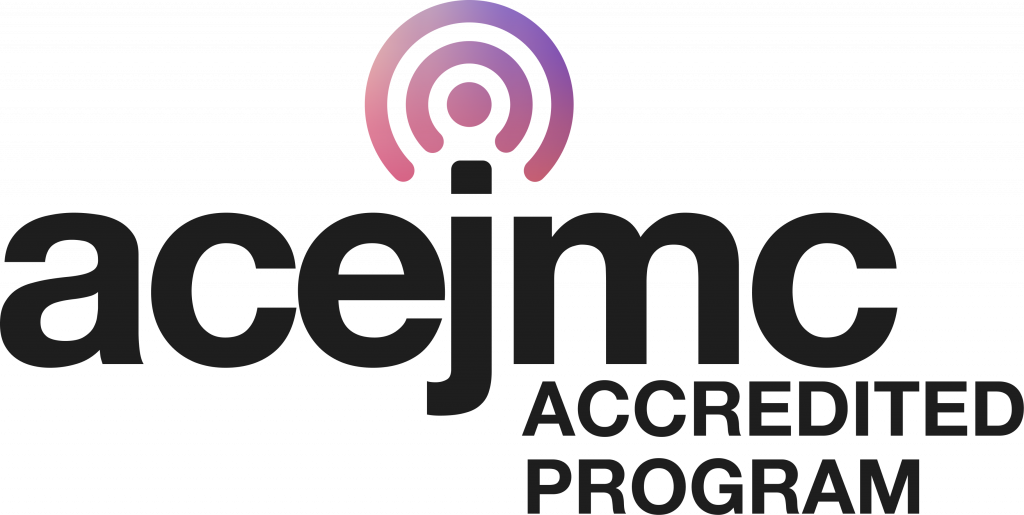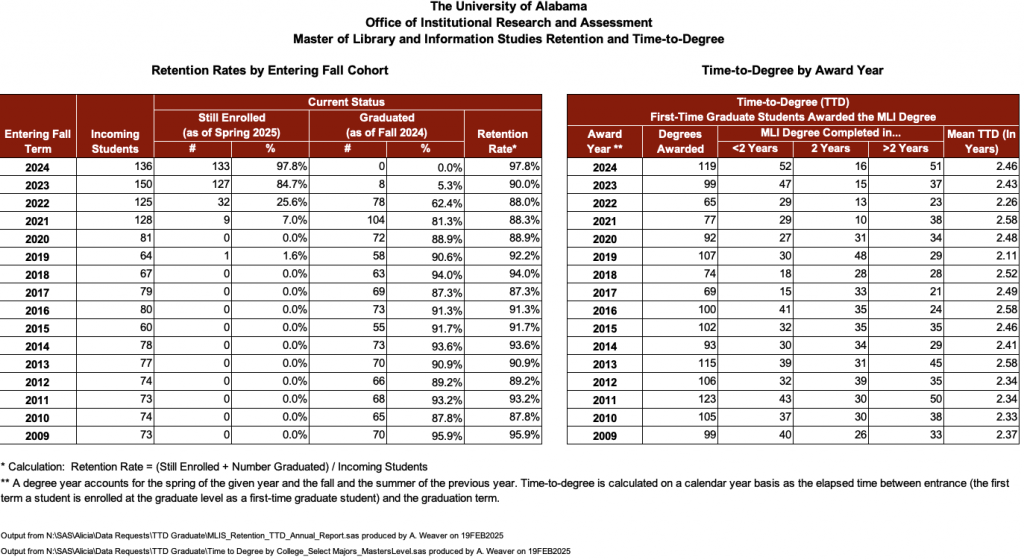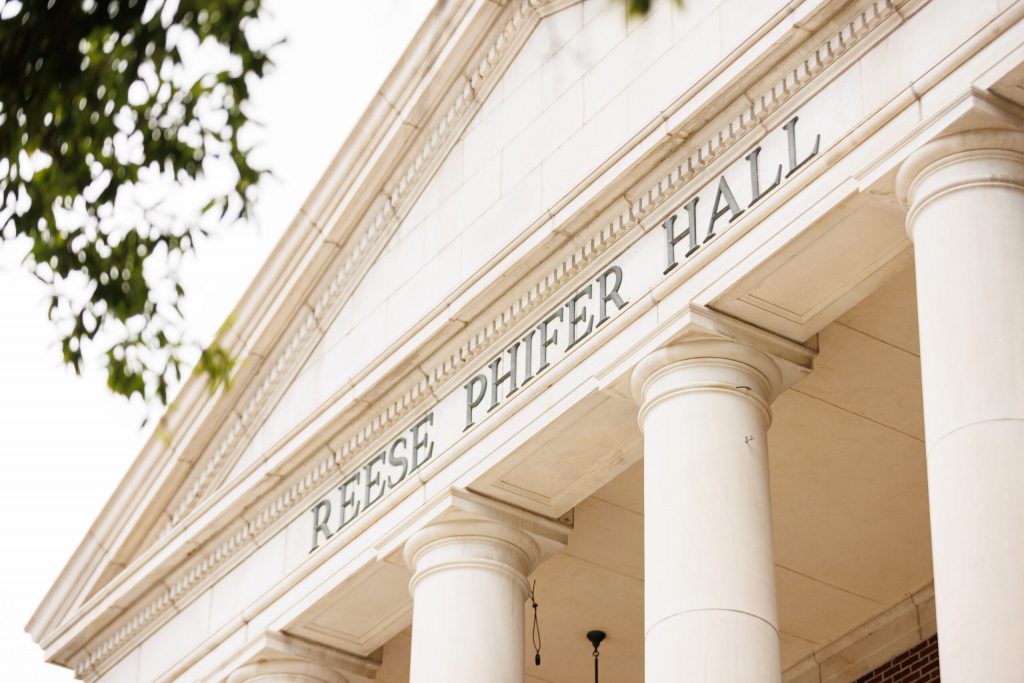
ACEJMC
The Accrediting Council on Education in Journalism and Mass Communication is dedicated to excellence and high standards in professional education in journalism and mass communications. The Council endorses professional education that recognizes and incorporates technological advances, changing professional and economic practice, and public interests and demands.
Bridging Perspectives
In accordance with the accreditation standards of the Accrediting Council on Education in Journalism & Mass Communications, the College of Communication & Information Sciences maintains a comprehensive plan that “promotes a standards-based and inclusive curriculum and fosters a culturally proficient faculty, staff, and student population (ACEJMC Standard 4 Indicator A).”
The Accrediting Council for Education in Journalism and Mass Communication
The College of Communication and Information Sciences includes three departments — Advertising and Public Relations, Journalism and Creative Media and Communication Studies — and the School of Library and Information Studies. Undergraduate programs in two units (Advertising and Public Relations and Journalism and Creative Media) are accredited by the Accrediting Council for Education in Journalism and Mass Communication (ACEJMC). One and two-year master’s programs in journalism and advertising and public relations are also reviewed by ACEJMC.
Since August 15, 2016, the former Department of Journalism and the Department of Telecommunication and Film have been the Department of Journalism and Creative Media. Up until the 2016-2017 academic year, the newly merged unit offered majors in Journalism and Telecommunication and Film. In addition to these majors, the Accrediting Council for Education in Journalism and Mass Communication (ACEJMC) also accredits majors in advertising and public relations. One and two-year master’s programs in journalism and advertising/public relations are also reviewed by ACEJMC.
The College’s undergraduate and master’s programs were fully re-accredited in May 2023.
Updated annually, the following data are provided as part of ACEJMC’s Public Accountability requirement:
Student Retention Fall to Fall by Unit*
| Year | Public Relations | Advertising | News Media | All UA Students |
|---|---|---|---|---|
| 2023 | 84.5 | 82.8 | 79.8 | 89.5 |
| 2022 | 89.8 | 93.3 | 91.1 | 86.1 |
| 2021 | 94.6 | 95.9 | 87 | 86.7 |
| 2020 | 94.2 | 84.6 | 91.9 | 88.6 |
| 2019 | 90.3 | 93.2 | 92.5 | 87.2 |
| 2018 | 89.2 | 88.2 | 87.3 | 86.9 |
| 2017 | 88.8 | 86.5 | 90.4 | 87.9 |
| 2016 | 85.6 | 89.2 | 78.5 | 87.1 |
| 2015 | 87.2 | 91.1 | 85.5 | 86.3 |
| 2014 | 88.1 | 84.1 | 84.1 | 86.5 |
| 2013 | 88.9 | 90.9 | 79.2 | 86.7 |
| 2012 | 90.2 | 83.7 | 85.2 | 87.0 |
| 2011 | 85.1 | 89.3 | 78.0 | 85.4 |
| 2010 | 84.4 | 87.5 | 82.2 | 86.5 |
| 2009 | 82.7 | 81.5 | 82.1 | 84.4 |
| 2008 | 80.2 | 85.7 | 81.1 | 83.5 |
Six-Year Graduation Rates for Full-Time, First-Time Undergraduates, Fall 2018 Cohort*
| C&IS Major | Head Count | Cont. 2nd Year (%) | Cont. 3rd Year (%) | Cont. 4th Year (%) | Grad in 4 Years or Less (%) | Grad in 5 Years or Less (%) | Grad in 6 Years or Less (%) |
|---|---|---|---|---|---|---|---|
| Advertising | 34 | 85.3 | 70.6 | 61.8 | 64.7 | 64.7 | 67.6 |
| News Media | 102 | 82.4 | 71.6 | 64.7 | 59.8 | 64.7 | 64.7 |
| Public Relations | 102 | 82.4 | 76.5 | 73.5 | 68.6 | 71.6 | 72.5 |
| C&IS Total** | 405 | 78.5 | 69.4 | 62.5 | 59.0 | 62.7 | 63.5 |
| University Total** | 6,632 | 86.9 | 80.6 | 73.1 | 56.6 | 70.4 | 73.4 |
**Students are counted by first or second major in C&IS. If a student has two majors in C&IS they will be included in the rates for both majors. However, the ‘C&IS Total’ and ‘University Total’ rows are unique headcounts.
Average Time to Degree (in Calendar Year) for Master’s Students (JN)*
| Year | Journalism (Count) | Journalism Mean Years |
|---|---|---|
| 2025 | 31 | 2.89 |
| 2024 | 28 | 2.16 |
| 2023 | 63 | 2.00 |
| 2022 | 24 | 1.85 |
| 2021 | 19 | 2.18 |
| 2020 | 10 | 2.23 |
| 2019 | 13 | 2.1 |
| 2018 | 9 | 2 |
| 2017 | 10 | 2.36 |
| 2016 | 7 | 1.24 |
| 2015 | 10 | 1.47 |
Time to degree is calculated on a calendar year basis as the actual time between entrance (the first term a student is enrolled at the graduate level) and graduation.
The count includes students in both one-year and two-year master’s programs.
*Updated August 8, 2025
Assessment Plans for ACEJMC Accredited Programs
Advertising & Public Relations programs

ALA
The American Library Association accredits master’s programs in library and information studies across the United States, Canada, and Puerto Rico. Accreditation is achieved through a review process conducted by an external review panel of practitioners and academics that verifies that the program meets the Standards for Accreditation of Master’s Programs in Library and Information Studies.
School of Library and Information Studies

MLIS Graduate Employment Data
Percentage employed in LIS profession within one year
| Graduation Year (all terms) | Percentage |
|---|---|
| 2023 | 89.29% |
| 2022 | 76.74% |
| 2021 | 84.62% |
| 2020 | 76.19% |
| 2019 | 66.7% |
| 2018 | 78.5% |
| 2017 | 79.1% |
| 2016 | 78.6% |
NASAD
The National Association of Schools of Art and Design is an association of approximately 346 schools of art and design, primarily at the collegiate level, but also including postsecondary non-degree-granting schools for the visual arts disciplines. It is the national accrediting agency for art and design and art and design-related disciplines.The Association also provides information to the public.

